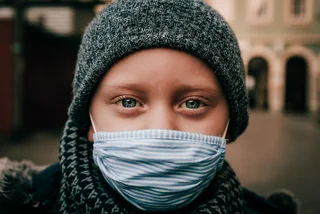Free antigen testing starts today, Dec. 16. People can be tested repeatedly, but no more than once every five days, according to the Ministry of Health. Costs will be covered by insurance.
A negative test, the result of which is known within 15 to 20 minutes, will also allow family and friends to visit senior citizen homes.
"Any interested citizen can be tested. We are counting on about 2,000 locations, and a large number of general practitioners will also take part," said Minister of Health Jan Blatný (ANO) said previously.
Hospitals and other locations could have the capacity to test about 3 million adults.
Self employment compensation in the president’s hands
Some self-employed people may be able to receive money from the government’s pandemic program, similar to during the spring wave of the coronavirus pandemic. Along with the bonus, they will also be able to draw money from programs for rent assistance or child care allowances. The draft proposal has passed both houses of Parliament but still needs to be signed by President Miloš Zeman.
The Senate proposal is part of an amendment to the Act on Excise Duties, which would also exempt breweries from excise duty on spilled or returned beer.
The compensation bonus for self-employed persons is CZK 500 a day for limiting their business due to the coronavirus crisis.
Life expectancy will drop
Scientists from the initiative Snow (Sníh) in an online press conference said thousands of people in the Czech Republic have died unnecessarily during the COVID-19 pandemic. They estimate that the country’s inhabitants have lost 90,000 years of life. The Czech initiative is part of the worldwide John Snow Memorandum, which calls for a science-based approach to the pandemic. It is named after the founder of the epidemiology, 19th-century British physician John Snow.
They claim the government's current compromise strategy will lead to the country struggling with the pandemic for longer.
Demographers also calculated that by the end of the year, the life expectancy of Czech men will decrease on average by about 1.15 years and that of women by almost one year. That will be the first decrease in half a century.
Dozens of Czech and Slovak scientists have signed the memorandum, including biochemist and vice-rector of Charles University Jan Konvalinka, molecular immunologist Václav Hořejší from the Institute of Molecular Genetics of the Czech Academy of Sciences and director of the Biological Center of the Academy of Sciences Libor Grubhoffer.
Following rules less closely, not working from home
Czechs are now protecting themselves less from COVID-19 than at the turn end of October and start of November. People are meeting, visiting relatives and friends, and going to work more often, according to a survey by PAQ Research.
The share of Czechs who visit family and friends has increased significantly. At the end of October, only 46 percent of people met with relatives or acquaintances at least once a week. At the beginning of December, 57 percent of respondents went to visit family and friends.
Also at the end of October, each participant in the survey was in contact for at least five minutes with an average of only 13 people a week. In the week between Nov. 30 to Dec. 6, every Czech was in close contact with an average of 16 people.
More people have also started going to work in person. At the end of October, 61 percent of respondents were personally present at work, and another 9 percent alternated with working from home. At the beginning of December, 69 percent of people were going to work and 9 percent were alternating. According to earlier data from the Institute of Health Information and Statistics (ÚZIS), in September about three-fifths of all people who were confirmed to have COVID-19 caught it at work.
Czechs also relaxed in complying with protective measures. At the end of October, up to 65 percent of people followed measures such as wearing a face covering, washing their hands thoroughly or avoiding places with a large number of people. By the beginning of December, the proportion of these people had dropped to 58 percent. Respondents who meet the largest number of people per week observe the protective measures the least.
People skeptical of vaccine
A survey by Ipsos showed that Czechs plan to wear face masks in risk situations, even if a vaccine against the new coronavirus is available. The survey showed that 62 percent of the people do not plan to completely stop wearing face masks.
The survey showed that a majority of people (58 percent) wore disposable face masks and that half of the people (52 percent) had a textile face mask at home. One out of 10 uses replaceable filters in the masks. Most people eat fruits and vegetables and also vitamins to improve their immunity.
Two-thirds said they would not get vaccinated against COVID-19 even if an effective vaccine is approved and available. Forty-five percent said they feared that the vaccine was not safe and 14 percent said vaccination seemed pointless to them.
Exemption sought for Christmas mass
The government should grant an exemption from the coronavirus lockdown for Christmas midnight masses, Czech Foreign Minister Tomáš (ČSSD) tweeted.
He asked Prime Minister Andrej Babiš and Health Minister Jan Blatný (for ANO) for this.
The lockdown measures in the fourth, stricter degree of the PES system, do not enable participation in midnight masses.
Zpřísnění opatření před Vánoci mj. zákaz vycházení po 23. hod a zákaz bohuslužeb nad 20 lidí v praxi znamená také zákaz tradiční půlnoční o Štědrý večer. Požádal jsem pana premiéra @AndrejBabis a ministra Blatného @ZdravkoOnline o zvážení výjimky pro tuto důležitou tradici.
— Tomáš Petříček (@TPetricek) December 15, 2020
Churches have to limit the number of participants in the masses. Besides, there will be the night curfew between 11 p.m. and 5 a.m. No singing is allowed, as this also spreads the virus.
Petříček said this meant a virtual ban on usual midnight masses on Christmas Eve.
In related news, Minister of Industry and Trade Karel Havlíček (for ANO) told daily Právo that it was unlikely that people would be able to celebrate New Year’s Eve in pubs or restaurants.
Today’s numbers
Since March, the Czech Republic has reported a total of 594,148 COVID-19 cases, the majority of which were reported in September and October. Of those, there have been 516,786 recoveries. There are currently 67,480 active COVID-19 cases in the Czech Republic. There are 4,632 hospitalized. Some 7,889 new cases were added since yesterday.
The country has reported 9,882 deaths since the start of the pandemic. The R number, showing rate of spread of infection, is at 1.1, according to the Stopcovidcz initiative. Any number over 1.0 means there is exponential growth. The risk index rose to 71, from 66 yesterday. For the PES level to drop down again to 3, the risk level index number will have to reach 60 or below for at least three days.












 Reading time: 5 minutes
Reading time: 5 minutes 




































